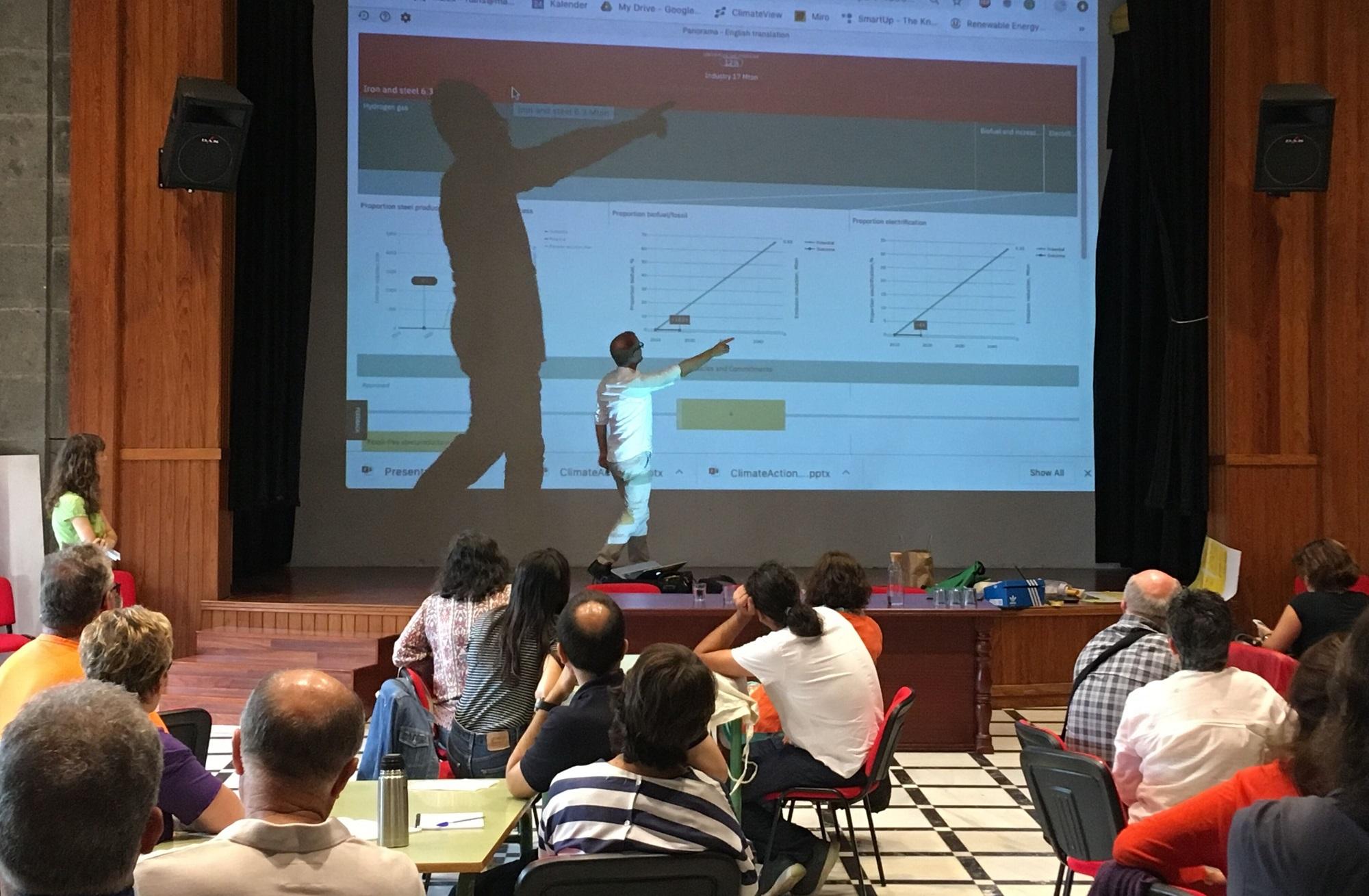
On 27-28 September 2019, the transition team of La Palma Renovable organised a community workshop on the island of La Palma, Spain, with the support of the EU Islands Secretariat. After having committed more than 100 organisations from the islands to the clean energy transition, the team’s objective for this workshop was to establish a process for collaboration among the local community, and work on ideas for decarbonising the island which would feed into the islands Clean Energy Transition Agenda.
A creative and thorough community engagement approach
In preparation for this workshop, the La Palma Renovable team had organised five sectoral workshops, where they brought together organisations from the sectors of Agriculture, Water, Tourism, Energy/Construction/Transportation, and Education/Culture/Research. The sectoral workshops had established a first pool of ideas. The objective of the transversal workshop on 27-28 September was to turn a number of these ideas into actionable projects.
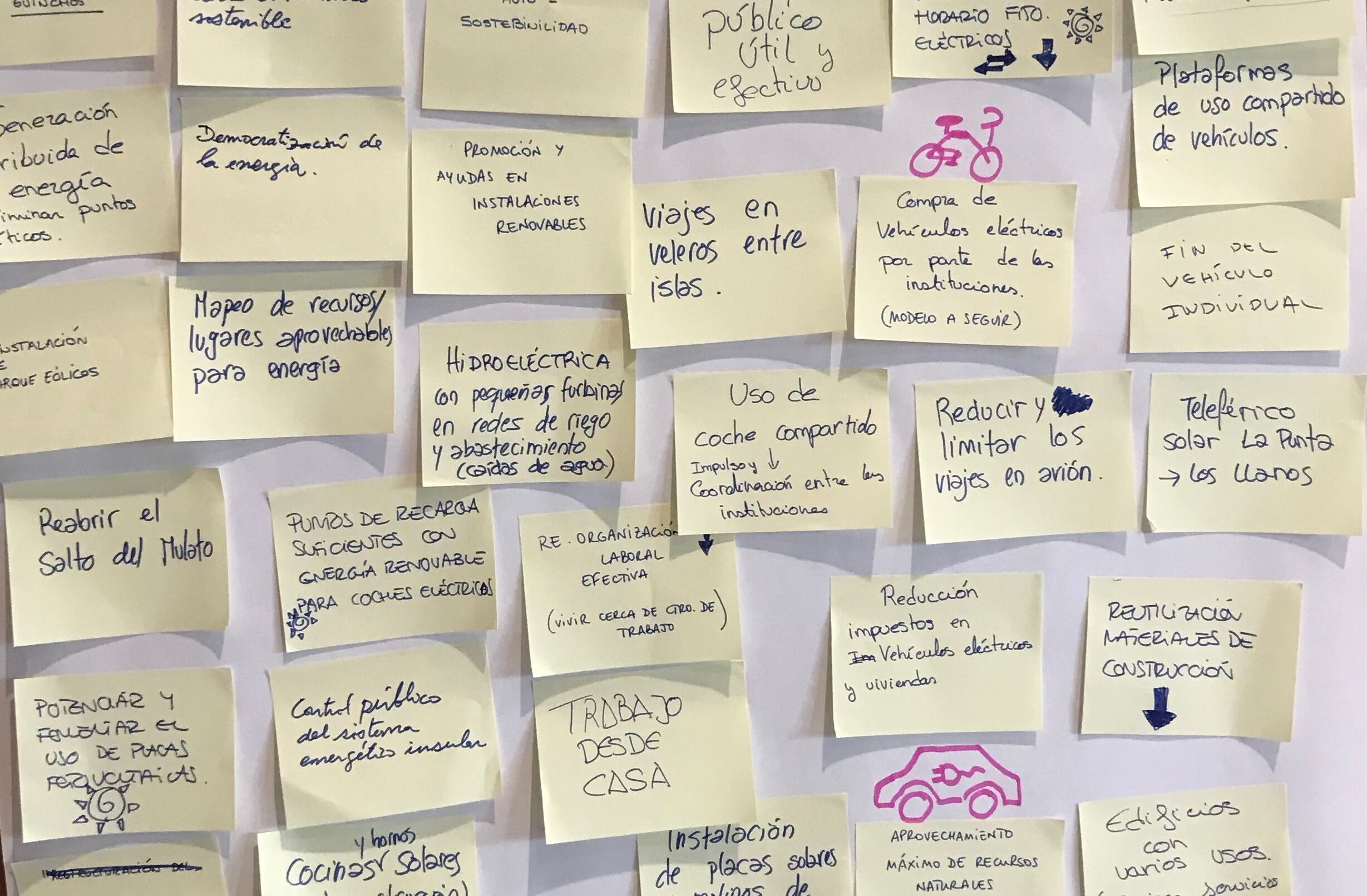
To support the island community in the process of establishing a decarbonisation plan, La Palma Renovable decided to work with ClimateView, an interactive online tool that visualises the island’s CO2 emissions by sector of activity, breaks down how these emissions could be reduced, and establishes concrete actions to implement these emission reductions.
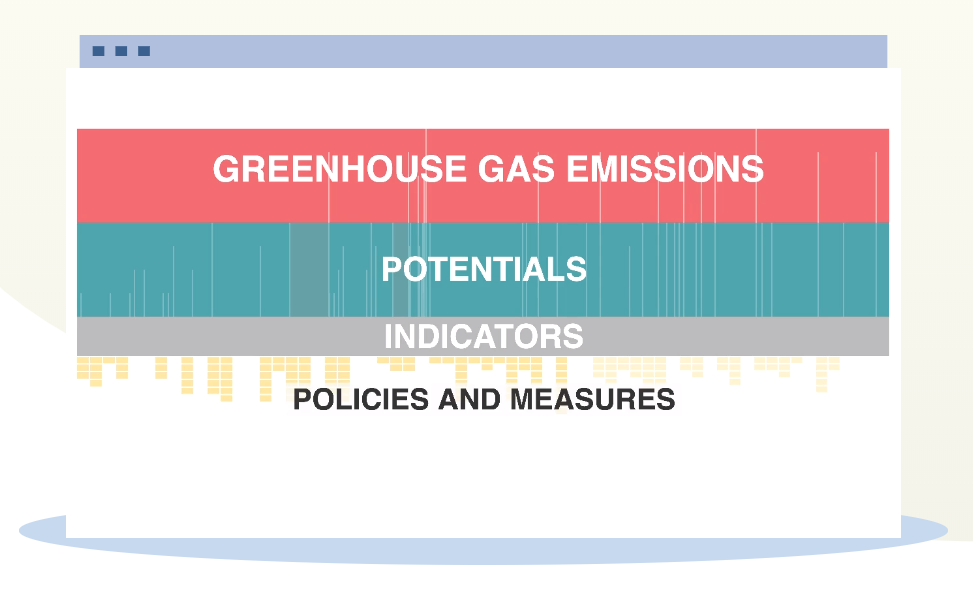
Opened by President of the Cabildo of La Palma (island government) Mariano H. Zapata and Director General for Energy at the Canary Island Government Rosana Melián, the group quickly went down to work.
Animated by the ClimateView team, La Palma Renovable, and a local facilitator, participants were encouraged to further elaborate some of the ideas that had come out of the sectoral workshops. To help them identify which ideas to take forward, the group jointly elaborated a set of criteria for what constitutes a “good” idea. With this in mind, they formed working groups around the selected ideas. These groups then developed an action plan for the ideas selected, using the Bono hats to guide the innovation process, and an idea and action canvas to write down the concept and action points.
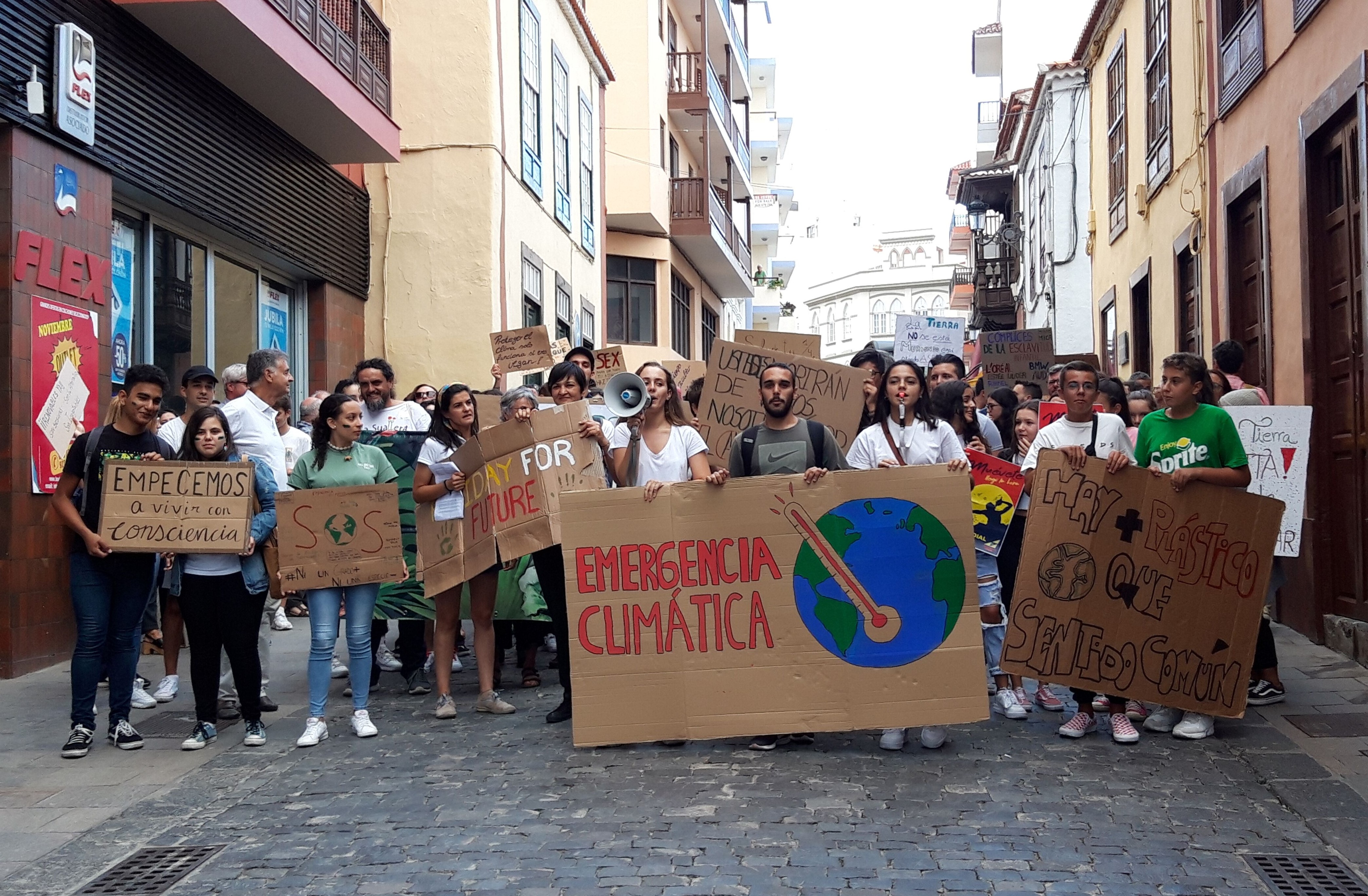
The first day of the workshop coincided with the #FridaysforFuture march in Santa Cruz de La Palma, where around 400 people from all generations called for urgent climate action on the island.
Fine-tuning decarbonisation ideas
The second day of the workshop served to situate the ideas in the socio-political and economic context of the island of La Palma, and Spain more broadly. In practical terms, the working groups looked at different groups of actors that would be relevant for bringing their specific idea to fruition, and grouped them into circles of influence (working group, actors who needed to and could be brought on board, and actors outside the working group’s control). With this in mind, the group revisited the actions they had defined for their idea on the previous day, and adjusted the actions where necessary. The main learning in this process was to understand how to differentiate between medium- and long-term actions, and the immediate actions the group would need to take in order to advance the idea.
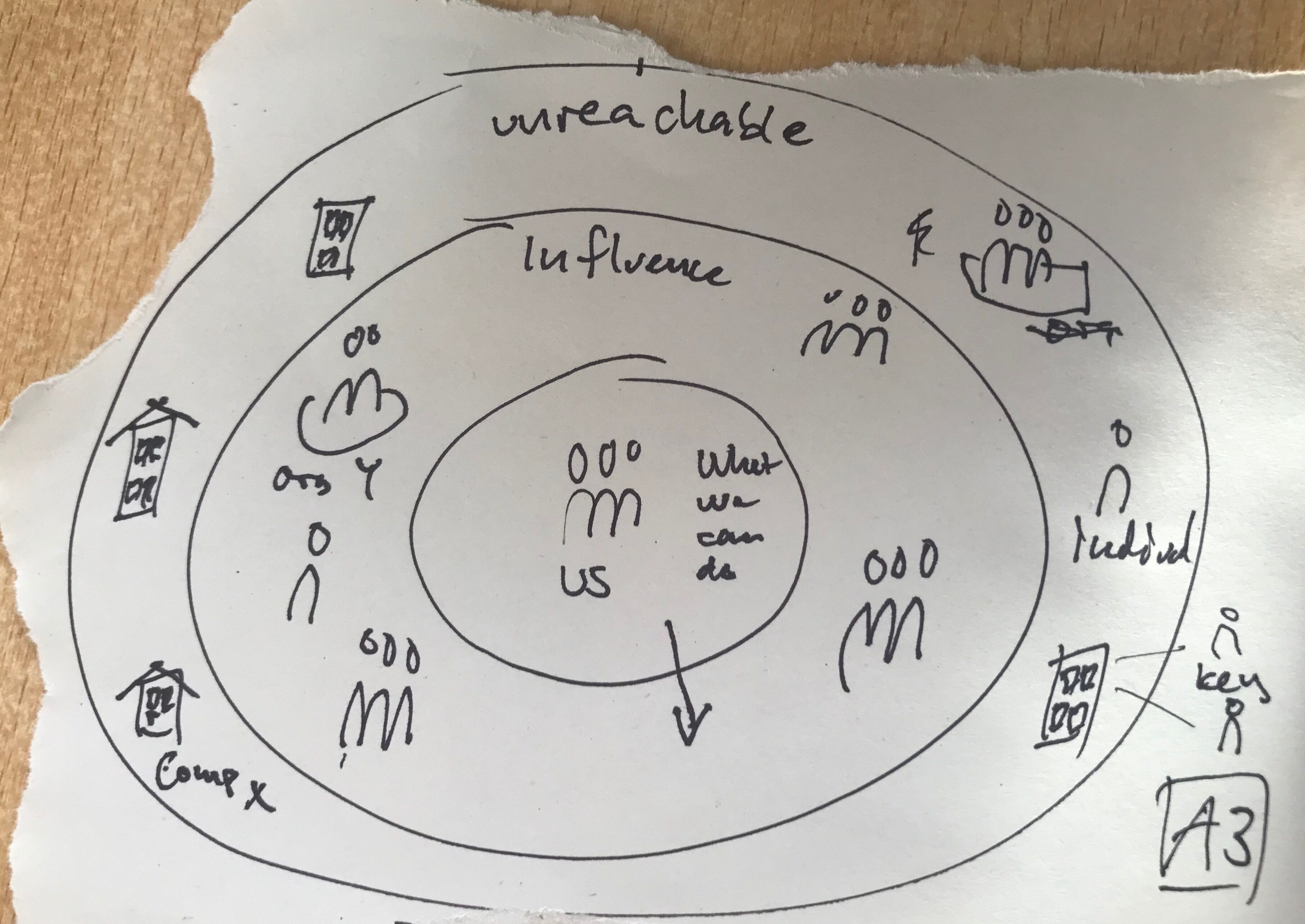
The ideas generated in the working groups included a car sharing platform, a renewable energy cooperative for pumping water, education for conscience change, environmental education in schools, promotion of agroecology, water depuration, and the recovery of the abandoned hydro-power plant Salto del Mulato among others.
Establishing the processes of the transition group
The group further discussed how they would organise themselves moving forward – including communication channels, meeting frequency and purpose, group structure and social events. “Idea servants” were appointed from each group who would liaise with the coordinating team of La Palma Renovable using the tool Slack, as well as a broad WhatsApp group for information exchange, and separate channels for each working group.
Energy levels stayed high throughout the two-day workshop thanks to both the organization and exercises brought by the facilitators, and the commitment and enthusiasm of the participants.
The next steps for the local community will be to involve experts to provide the missing pieces of information to advance the ideas generated during the workshop, and to propose additional actions that will help reduce the CO2 emissions on La Palma.
Political support for La Palma’s energy transition
All levels of regional government joined the workshop to show their support for the transition efforts taking place on the island of La Palma. Following the opening of the workshop by both island and regional government representatives, Energy Councilor of the Cabildo of La Palma Carlos Cabrera and the Canary Islands' Government Councilor José Antonio Valbuena closed the workshop by highlighting in their speeches once again the urgency of acting on climate change, and their support for the bottom-up approach taken by the La Palma transition team.
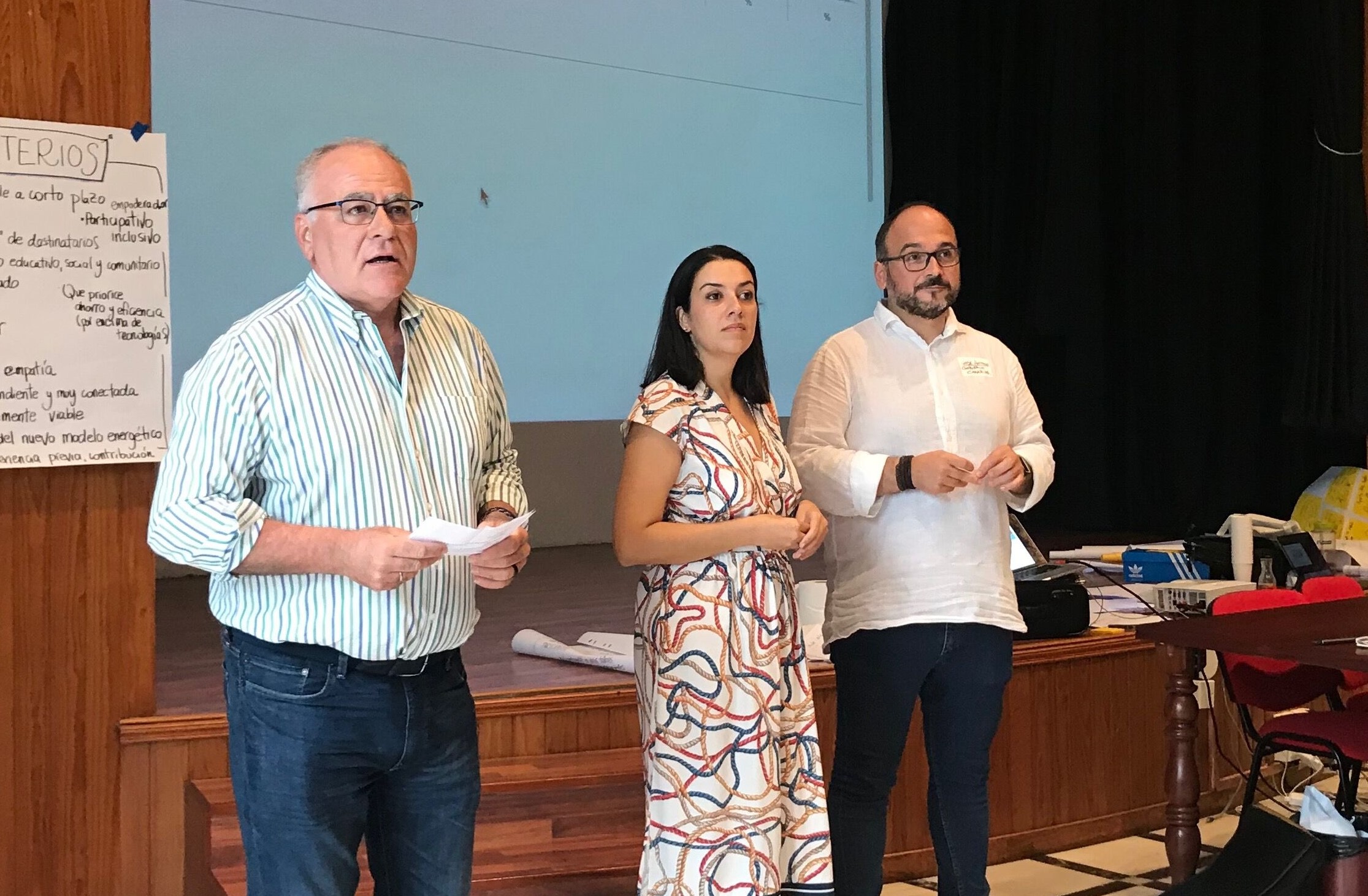
Government Councilor José Antonio Valbuena
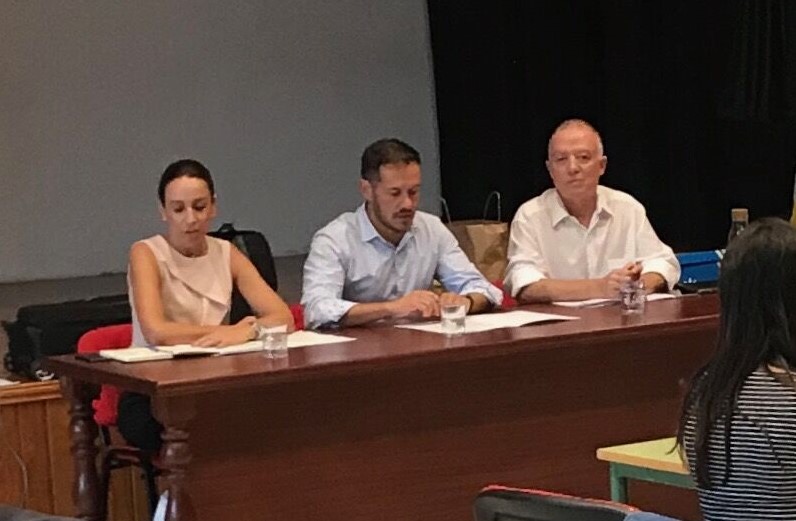
Melián and President of the Cabildo of La Palma (island government) Mariano H. Zapata














